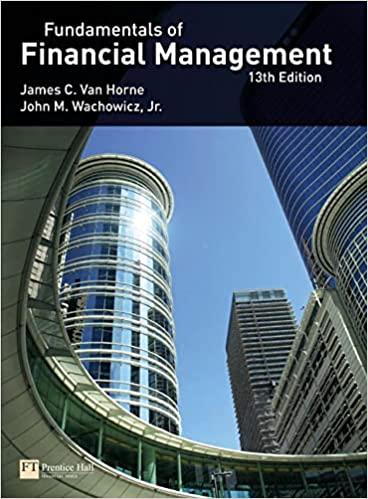Question
1. Ben has $1,000 in a checking account at Big Bank and writes a check for $100 drawn on Big Bank and payable to Susan.
1. Ben has $1,000 in a checking account at Big Bank and writes a check for $100 drawn on Big Bank and payable to Susan. Big Bank wrongfully refuses to pay the check when it is presented for payment by Susan. Assuming the check is not certified, which of the following is true regarding the rights of the parties?
Multiple Choice
Big Bank is not liable to either Ben or Susan, and Bens only remedy is to stop doing business with the bank.
Big Bank is liable to Ben for breaching its contractual obligation to him, but Big Bank owes no obligation to Susan.
Big Bank is liable to Susan for breaching its contractual obligation to her, but Big Bank owes no obligation to Ben.
Big Bank is liable to both Ben and Susan for breaching its contractual obligation.
2. Which of the following is true regarding an instrument made payable "to cash"?
Multiple Choice
-
It is order paper that may be negotiated by transfer of possession of the instrument after indorsement.
-
It is bearer paper that may be negotiated by transfer of possession of the instrument after indorsement.
-
It is bearer paper that may be negotiated by transfer of possession alone.
-
It is order paper that may be negotiated by transfer of possession alone.
3. Betty, a dishonest bookkeeper of ABC Company, had a practice of drawing checks payable to people who did not exist. She had the authority to sign the checks on behalf of the employer and did so. Betty then took the checks, indorsed them in the name of the payees, presented them for payment at Big Bank using fake identification, and kept the money. After this had gone on for several months, Bob, the president of ABC Company was looking through records received from the bank, discovered the payments to nonexistent people, and, after investigation, discovered Bettys indiscretions. By the time Bob discovered the indiscretions, Betty had left the company and could not be found. Assuming that Big Bank acted in good faith and used ordinary care, which of the following is true regarding the rights of ABC Company, if any, as to Big Bank?
Multiple Choice
-
Big Bank must reimburse ABC Company for the amounts of the checks wrongfully cashed by Betty because Big Bank should have been more careful.
-
Big Bank must reimburse ABC Company for one half of the amounts of the checks wrongfully cashed by Betty because losses would be equally allocated between Big Bank and ABC Company.
-
Big Bank must reimburse ABC Company for the amounts of the checks wrongfully cashed by Betty only if ABC Company had an account with Big Bank; otherwise, Big Bank does not have to reimburse ABC Company for any amounts.
-
Big Bank does not have to reimburse ABC Company for any amounts.
4. Rather than issuing him a certificate of deposit (CD) in paper form, Todds bank maintained an electronic deposit record and provided him with a statement indicating the amount of principal held on a CD basis and the terms of the CD, including the maturity and interest rate. Which of the following is true in regard to the deposit?
Multiple Choice
-
The statement Todd holds is negotiable only if the transferee of the statement agrees to its negotiability.
-
The statement Todd holds is not negotiable.
-
The statement Todd holds is negotiable.
-
The statement Todd holds is negotiable only if the bank agrees to its negotiability.
Step by Step Solution
There are 3 Steps involved in it
Step: 1

Get Instant Access to Expert-Tailored Solutions
See step-by-step solutions with expert insights and AI powered tools for academic success
Step: 2

Step: 3

Ace Your Homework with AI
Get the answers you need in no time with our AI-driven, step-by-step assistance
Get Started


